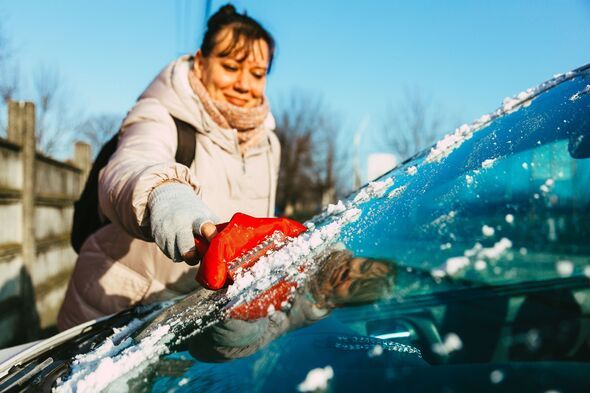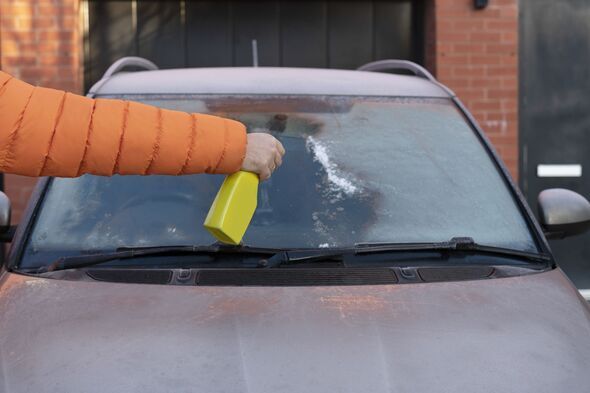

Motorists have been urged not to follow a dangerous driving that could lead to and .
A number of areas across the country may experience a in the early parts of next week, meaning many motorists may need to remove the ice from their windscreen.
However, the replacement wiper blade retailer urged all drivers to avoid the process of 'portholing' to save time.
They warned: "A tempting but dangerous habit is portholing. This is when drivers only clear a patch of the windscreen, a 'porthole', to look through when they are driving.
"This is dangerous and can land you with a hefty fine of £60 rising to £2,500 if your driving is deemed to be dangerous. Make sure that you always clear your entire windscreen before setting off."

It is only natural for motorists to get frustrated to find that their windscreen is covered in a sheet of ice on a cold winter morning, with some tempted to only clear a small amount in front of them before they set off.
However, doing this can severely restrict how much a motorist is able to see from behind the wheel, vastly increasing their blind spots and, as a result, the risk of accidents with surrounding road users.
To stay safe and avoid fines of up to £2,500, drivers should give themselves enough time to clear the entire windscreen and all other windows on the vehicle.
Similarly, Windscreen Wipers also suggested that drivers avoid using boiling water from the kettle in a bid to melt ice from their windscreen, which can lead to serious damage.
They added: "Using water of any temperature to de-ice windscreens is not advised.
"Hot water will cause the glass to expand, which can result in it cracking or even shattering, and cold water can freeze on top of existing ice and frost. Both methods can damage your windscreen, sometimes beyond repair.

Instead, drivers looking to clear their windscreen quickly is to use a can of de-icer, which is available from motoring accessory shops and most supermarkets from around £2.
These de-icers use chemicals to lower the freezing point of the ice on the windscreen, causing it to melt at a very quick rate and prevent freezing over.
Motorists could also get a similar effect from mixing vinegar or isopropyl rubbing alcohol with water, applying it to the icy windscreen with a spray bottle.